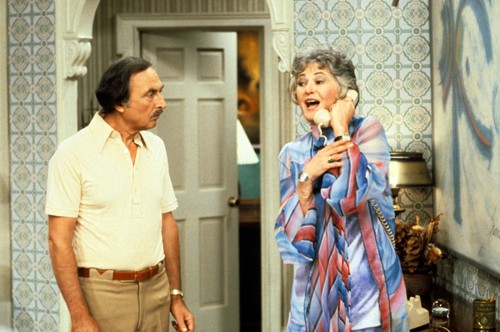
Maude was an American sitcom that started out as a spin-off of All in the Family. Whereas All in the Family was centered around a conservative, working class man with a lot of prejudices, Maude was centered around the titular character, who was a liberal, upper-middle class woman who supported equal rights for all genders and all races. However, it is important to note that Maude Findlay was far from being without her own share of faults, which provided the sitcom with much of its narrative over its six seasons.
Why Did Maude Stand Out So Much?
To understand why Maude stood out so much, it is important to understand that it started broadcasting in 1972 and continued broadcasting until 1978, meaning that it existed in a much less progressive time than recent decades. In spite of this, it was unafraid to tackle a wide range of controversial issues without sacrificing the comedic elements that were core to its appeal.
For example, Maude‘s best-known moment might have been the two episodes in which she became pregnant. Since she was at the age of 47, the character thought it over while in consultation with her husband before making a decision to abort the pregnancy because raising a child was not something that either of them wanted at that point in their lives. As a result, Maude headed over to the state of New York, where she was able to get a legal abortion because the narrative was set two months before Roe v. Wade made the practice legal throughout the whole of the United States in 1973.
Another example was an episode in which Maude and some of her friends attempted to get arrested for protesting the conviction of a grocery boy’s conviction for the possession of marijuana. Said crime was contrasted with most of the characters’ casual attitudes towards both drinking and the abuse of prescription drugs, which were dealt with in other episodes. Regardless, the episode was a direct challenge to what have become known as the Rockefeller Drug Laws, which stipulated a minimum sentence of 15 years in prison for anyone who was caught for selling two ounces or more of a number of drugs that included marijuana.
With that said, it is interesting to note that Maude was not always depicted in a positive light. In a real sense, she was depicted as a sort of limousine liberal, meaning a person who espoused liberal views but was not always good at living up to them. This can be seen in Maude’s often-awkward interactions with her black housekeeper Florida Evans, which made the character popular enough to result in a spin-off called Good Times.
What Is a Moment from Maude that Seemed 20 Years Ahead of Its Time?
Regardless, one of the most striking moments from Maude was when she challenged her neighbor’s desire to shut down a gay bar in their town, which resulted in the two friends visiting said establishment in person to see what it is like on the inside. Amusingly, the gay bar is far from being what Maude’s neighbor had expected, seeing as how it was rather sedate if anything else. This was particularly striking because it was two decades before Will & Grace did something similar to promote the acceptance of gay people by showing them to be real people rather than lurid fantasies out of fevered imaginations, meaning that Maude was ahead of its time when it chose to do the story that it did.
 Follow Us
Follow Us





